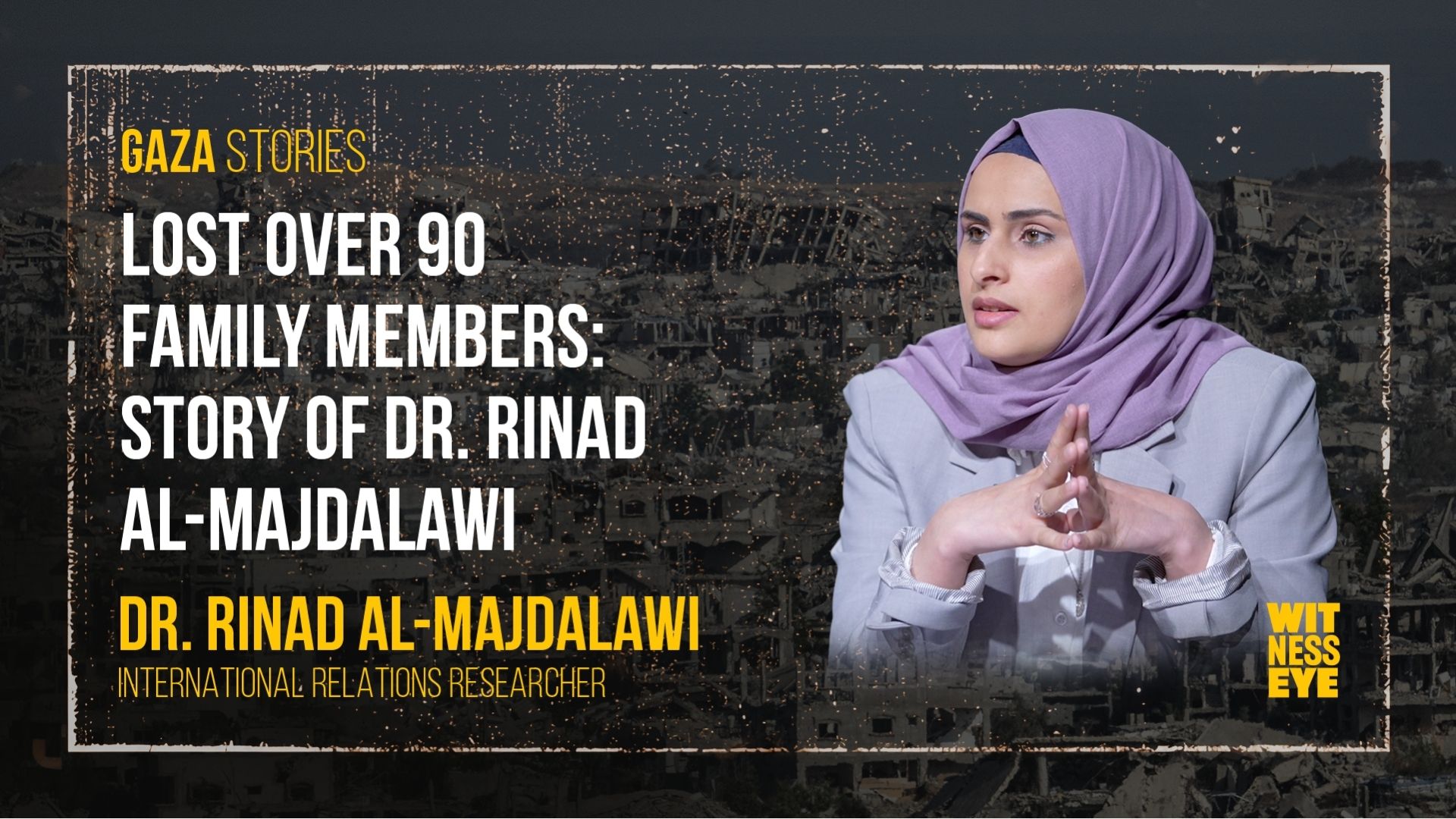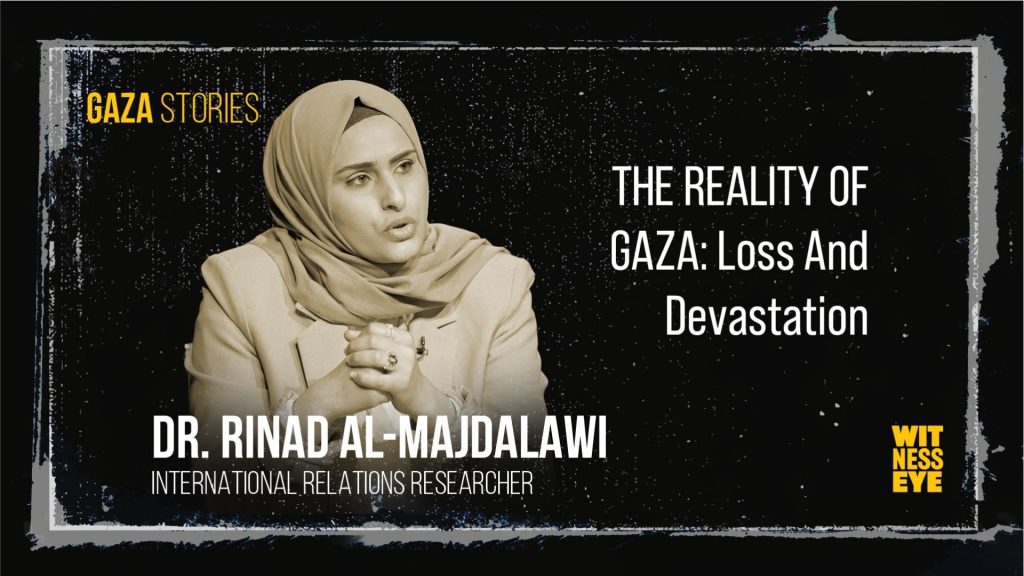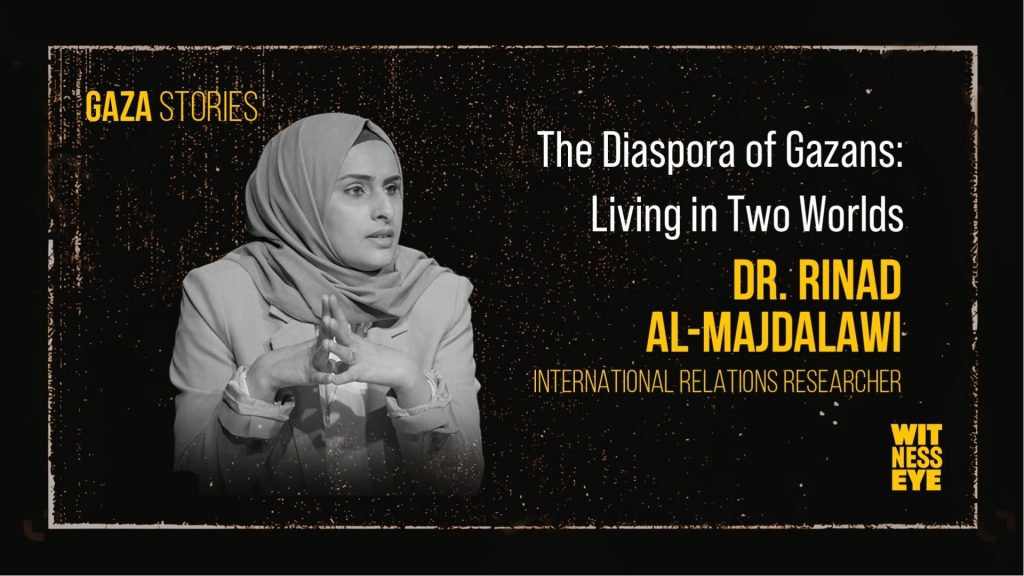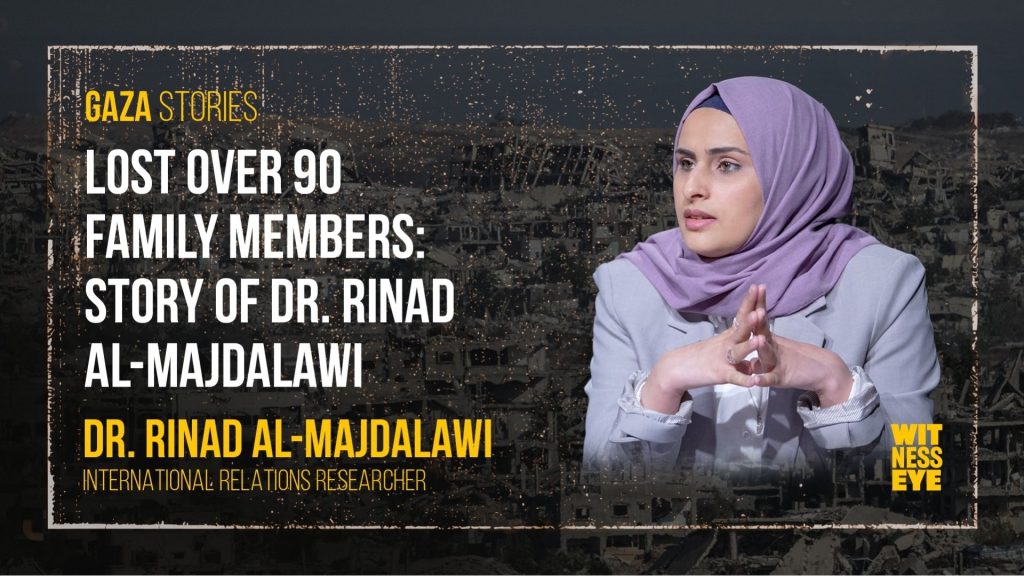
When everything moves too fast to feel real, there are moments that make us stop, breathe, and reflect. Here’s something that truly matters—Dr. Rinad Al-Majdalawi’s journey is one of loss, survival, and the emotional scars left by the war in Gaza. Her story is not just another tragedy; it’s a reminder of the lasting human cost of conflict. Let’s not pretend this isn’t obvious: war destroys more than buildings and lives—it erases histories, communities, and futures. If we zoom out just a little, we can see that Dr. Al-Majdalawi’s pain is not just her own; it’s a universal struggle for all those displaced and those whose families remain trapped in Gaza. This all leads to one clear thing: war doesn’t end when the fighting stops. It lingers, it tears apart, and it never truly lets go.

The Reality of Gaza: Loss and Devastation
What really stands out here is the devastating reality of war—something we can’t miss when we listen to Dr. Al-Majdalawi’s story. “We have lost many lives, many homes,” she reflects, not just on her own family’s suffering but the collective trauma that Gaza has endured. Her family’s home was bombed just days before the first truce, and with it, their entire world was shattered. Let’s talk about what truly needs saying: the pain of losing over 90 members of her extended family is more than a number; it’s a generation lost. Every bomb, every death, every house destroyed is not just an event—it’s a wound in the heart of a people. This leads us right here: the physical destruction of war is clear, but its emotional devastation is deeper, reaching into the very soul of Gaza. We can’t overlook this part—it’s not just about what’s gone, but what will never be the same.

The Diaspora of Gazans: Living in Two Worlds
And now, here’s the heart of it: Dr. Al-Majdalawi’s pain doesn’t just stem from the war in Gaza; it’s the torment of living between two worlds. “You’re living here but not living,” she says, capturing the emotional toll of being an expatriate, torn between the life you’ve built and the one you’re forced to watch from a distance. This part hits deeper than most realize. Expatriates live in a state of constant tension, forced to carry the weight of Gaza on their shoulders while trying to live in a new world. You don’t get to pause or don’t get to stop for a moment. “You have to follow the news while you’re running on transportation, at work, at university,” Dr. Al-Majdalawi shares. And that’s the path it carved out—constantly waiting for news, for updates, for any confirmation that your family is safe. Every call, every message, is a potential moment of devastation. What’s come to light is this: expatriates don’t just live in exile; they live in limbo, balancing the life they’ve made and the life they can’t escape.
Gaza: Struggling Despite International Law
Let’s not ignore the flip side of this: Dr. Al-Majdalawi’s growing disillusionment with international law is not just about academic frustration—it’s a deep emotional reckoning. She had once believed in the power of international institutions to hold perpetrators accountable. But after witnessing the ongoing atrocities in Gaza, she lost faith in the system. “I completely lost faith in the specialization,” she confesses, pointing to the failure of UN resolutions to prevent the massacres. Here’s what sticks after all’s said: the legal systems that are supposed to bring justice have done little to stop the violence or protect the innocent. It’s hard to miss when you really look—the resolutions passed by the UN remain symbolic, failing to bring justice, while Israel acts with impunity. It makes perfect sense that international law has become a tool for the powerful, not the oppressed. But let’s not pretend this doesn’t matter—these institutions were built to uphold justice, but they’ve become complicit in maintaining the status quo, protecting Israel from the consequences of its actions.
Role of Technology in Genocide
Let’s layer one more truth on top: technology has dramatically reshaped warfare, and in the case of Israel, it’s made violence even more precise and devastating. AI systems like Habsora and Lavender, which analyze massive amounts of data to target individuals, have raised serious ethical questions. “These systems don’t care about the circumstances of the targeted person,” Dr. Al-Majdalawi warns. What’s come to light is this: as AI systems become more advanced, warfare becomes less about human judgment and more about data points—leaving no room for compassion or consideration of civilians. You can almost see it playing out: innocent families, women, and children are targeted based on algorithms with no regard for the context or the reality of the people involved. The systems are built to neutralize threats, but they don’t stop to ask if that person is with their family, living in their home. So here’s the real deal: technology is transforming warfare, but at what cost? It’s making attacks more brutal, more detached from the human lives they affect.

Future of Gazan People: Call to Action
But let’s not forget the flip side—Dr. Al-Majdalawi remains hopeful that the future holds the possibility for change. She stresses the need for a unified resistance, not just from political elites but from the people themselves. “We need struggling resistance,” she says, pointing to the power of grassroots movements to effect change. The future will witness changes, she believes, but only if we continue to fight for justice, not just through research and legal avenues, but through collective action. Let’s walk through this together: the road to accountability is not just about writing papers or passing resolutions; it’s about mobilizing people, creating awareness, and pressuring governments to act. We can see it playing out: small victories, growing voices, and the hope that change is coming, one step at a time.
In the midst of all this noise, tech hasn’t slowed—not for a second. AI sits at the center of everything now, from warfare to diplomacy. It’s clear—technology is shaping our future, and how we choose to wield it will determine whether we continue down a path of destruction or move toward justice. The data speaks: it’s up to us to listen, to act, and to ensure that the future we create is one where accountability and justice finally prevail.
Stay Connected with Witness Eye
Follow us on our official channels:
